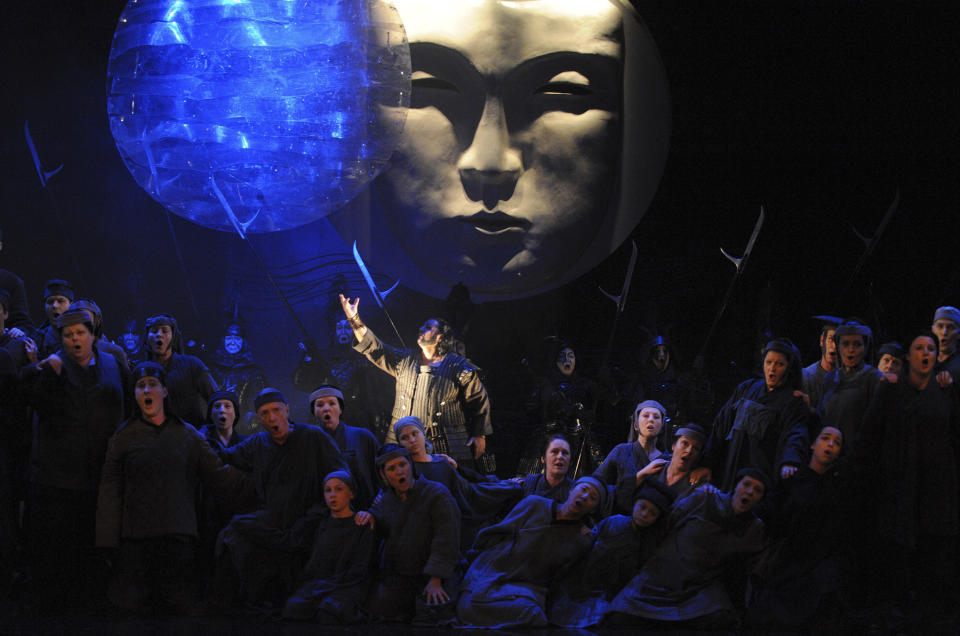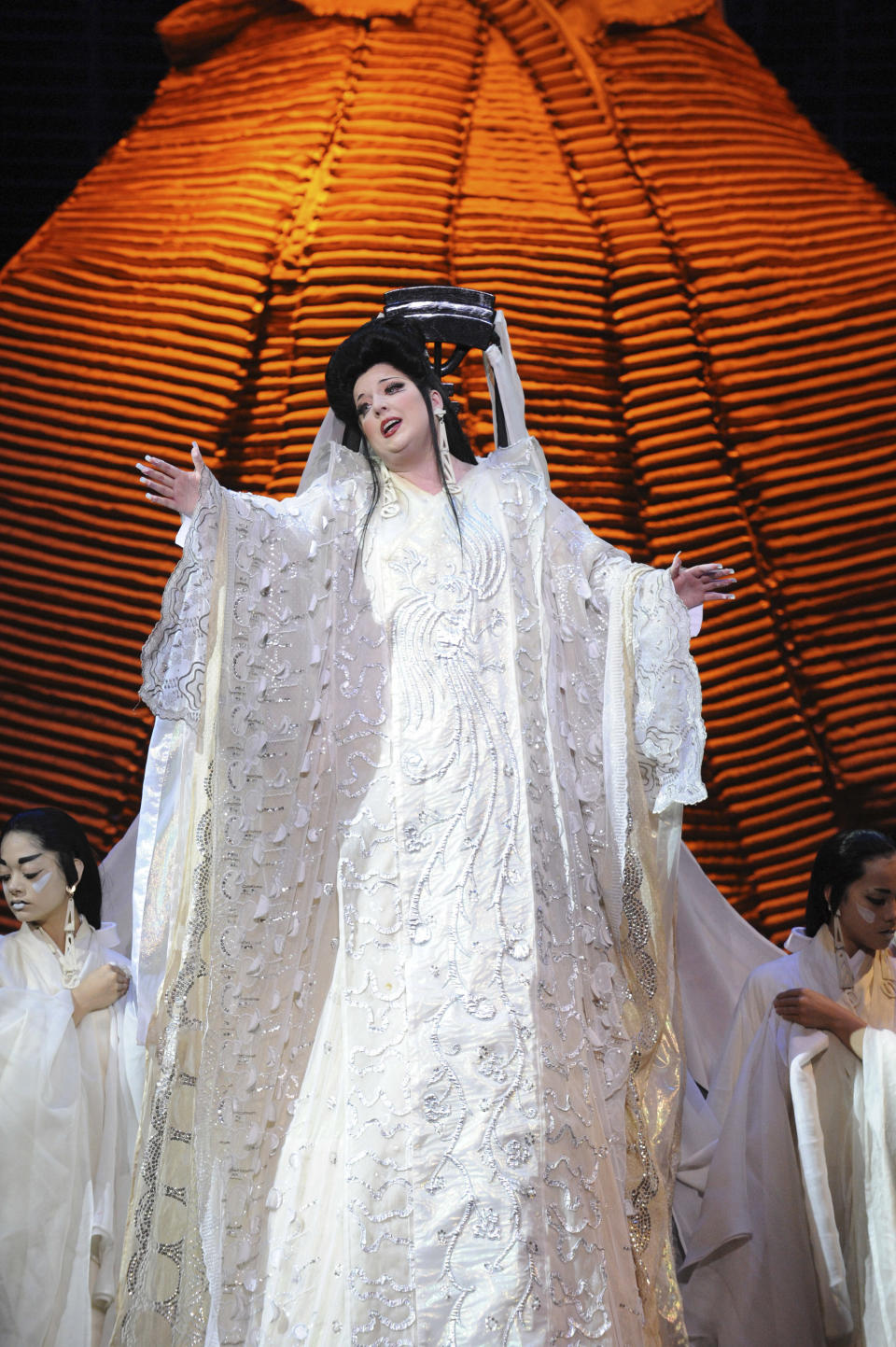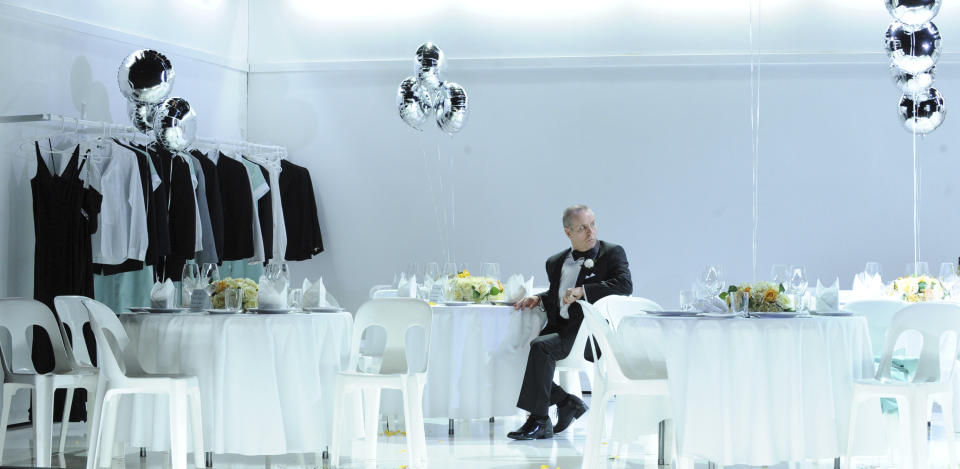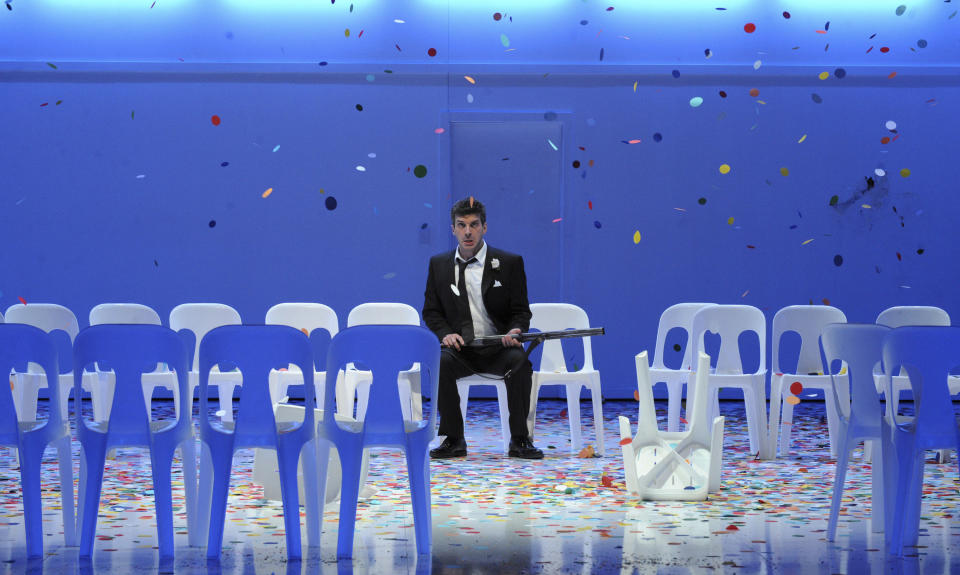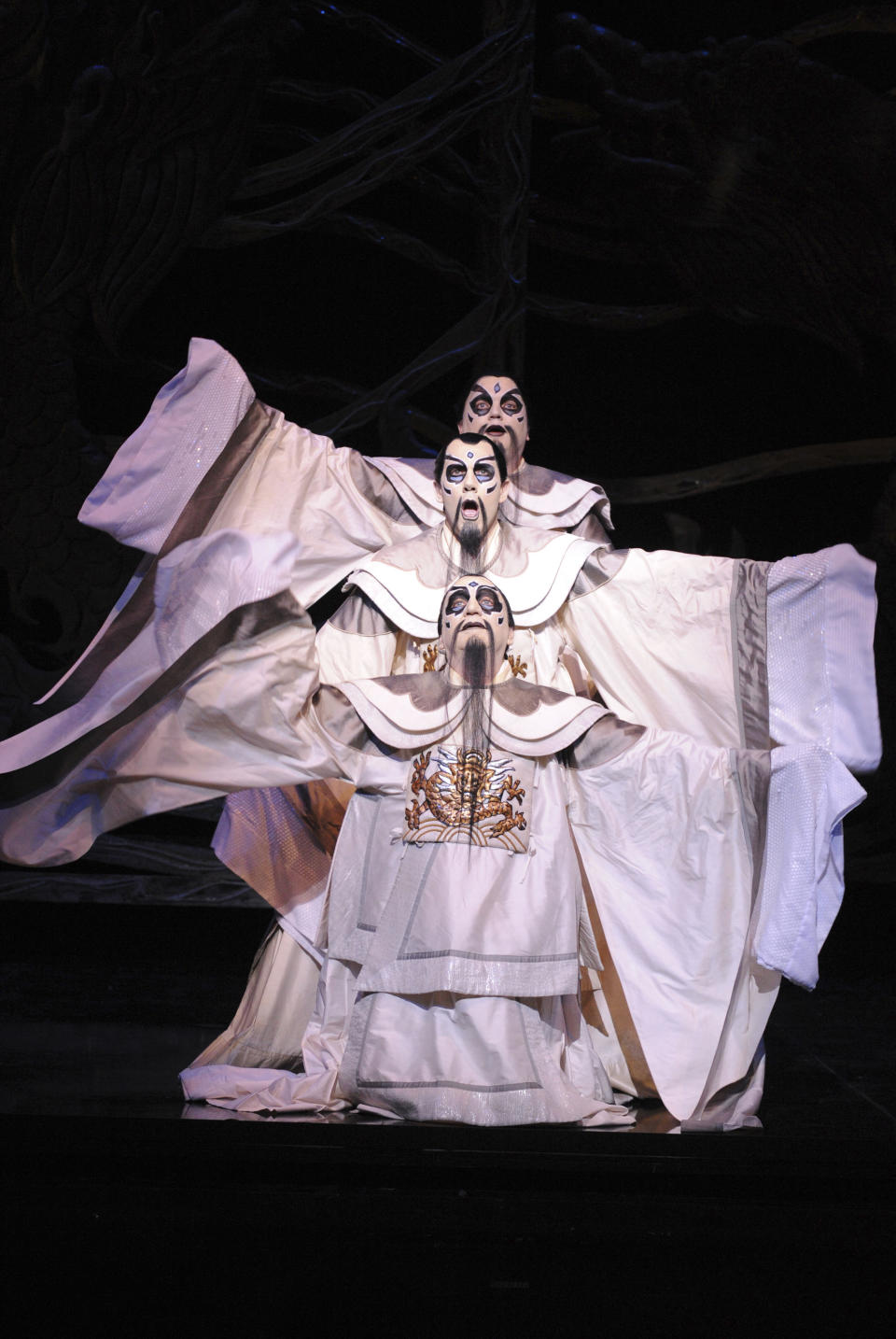Modern 'Figaro,' timeless 'Turandot' in Sydney
SYDNEY, Australia (AP) — In its new production of Mozart's "The Marriage of Figaro," Opera Australia shows how a classic work can be reset in the modern world without violating the spirit of the original.
By way of contrast, the company's revival of Puccini's "Turandot" represents a triumph of the traditional, taking a fairy tale of ancient China on its own terms and bringing it to life through dazzling stagecraft.
In seeking to make Mozart's bittersweet comedy accessible to as broad an audience as possible, director Benedict Andrews (using an English translation by Jeremy Sams) has updated the action from an 18th century Spanish castle to a modern-day gated estate. Figaro is now a uniformed security guard, and his boss, Count Almaviva, a bored one-percenter who is first glimpsed watching TV while plotting to seduce Figaro's fiancee, Susanna.
Aided by Ralph Myers' set — a series of white boxes representing various rooms in the estate — Andrews unfolds the complicated plot in crisp, clear fashion with some nice touches and a few missteps. Among the nice touches: having the Count jump into a washing machine to hide rather than be found alone with Susanna in her room; or, later, having him snatch the bride-and-groom figure from atop Figaro's wedding cake and break it apart.
But it's less plausible to imagine him ordering a freshly killed deer dragged into his wife's bedroom. And the most serious lapse comes at the very end, when the Count, his bad behavior exposed to one and all, begs his wife's forgiveness. Instead of appealing to her on bended knee, Andrews has him fall to the ground in an exaggerated pose that undercuts the sublimity of the music.
In Friday night's performance, Taryn Fiebig as Susanna stood out among a generally strong cast. Her lyric soprano had a wonderfully warm, buttery sound, and her performance radiated charm without slipping into pertness.
Baritone Michael Lewis turned Count Almaviva into a finely crafted study in self-absorbed petulance, while Shane Lowrencev, with his lean, towering figure and resonant bass voice, made Figaro an opponent to be reckoned with. Soprano Elvira Fatyakhova gave stylish delivery to the Countess' two great arias; mezzo-soprano Anna Yun was a nicely gawky Cherubino.
Conductor Anthony Legge led a fast-paced performance that once or twice left the soloists behind.
On Saturday afternoon, the company performed Puccini's final opera in a still-breathtaking 1990 production by Graeme Murphy, who also devised the choreography. That last fact is crucial, for this is a "Turandot" that rarely stops moving, its fluid swirl of soloists, choristers and dancers well-matched by the ornate sets of the late Kristian Fredrikson and the ever-shifting lighting by John Drummond Montgomery.
Murphy invites us to feast our eyes on one indelible image after another: the first appearance of princess Turandot behind a giant mask, coldly sending her latest suitor to his death; her father, the Emperor, barely visible atop a grotesquely tall, tent-like orange throne; Calaf alone on stage to sing "Nessun dorma," wandering in the dark of night through purple mist and undulating fabric.
Best of all, perhaps, is Murphy's setting for the scene in which the ministers Ping, Pang and Pong (Andrew Moran, Graeme Macfarlane and David Corcoran) lament the state of imperial China and long for retirement. Each carries a large, intricately painted piece of canvas supported by poles at either end. Sometimes they wrap themselves inside the canvas; other times, with the help of extras, the canvas turns into a chair, a swing, a hammock, or even a bed. With such imaginative staging, a scene that can often seem tedious flies by.
In the daunting role of Turandot, dramatic soprano Anke Hoeppner hit all her high notes, though with occasional stridency. More important, she did a terrific job conveying the conflicting emotions of the icy princess awakening to love — and managed to inject some suspense into the final moments of the story.
Tenor Carlo Barricelli as Calaf came to grief on one high note, but otherwise he sang expressively and with a fair amount of ringing tone. Bass Jud Arthur gave eloquence to the utterances of Calaf's father, the blind Timur. As Liu, the devoted slave girl who often steals the show, lyric soprano Hyeseoung Kwon shaped her arias beautifully and made her suicide as shocking as it should be.
Arvo Volmer conducted the orchestra in a colorful and nuanced performance of the score.

